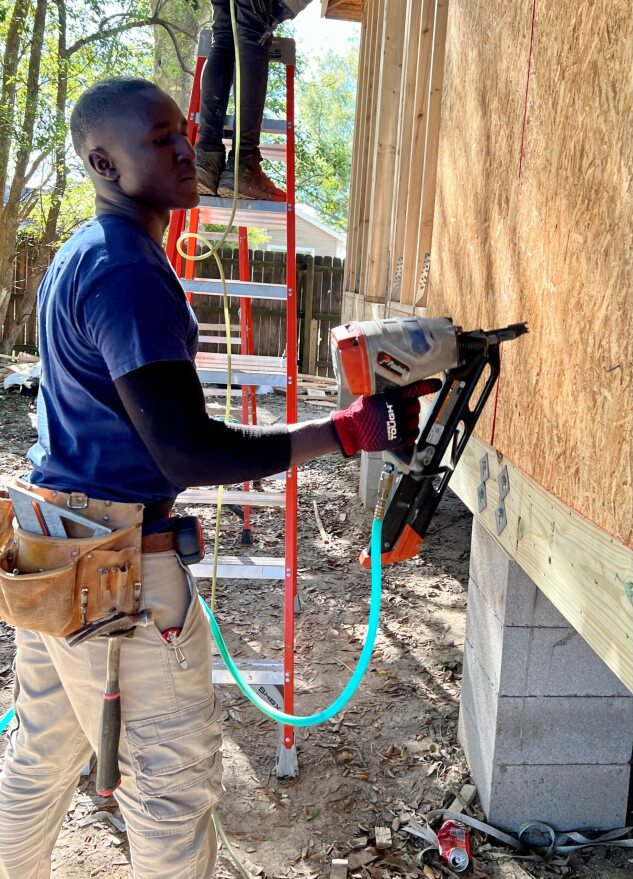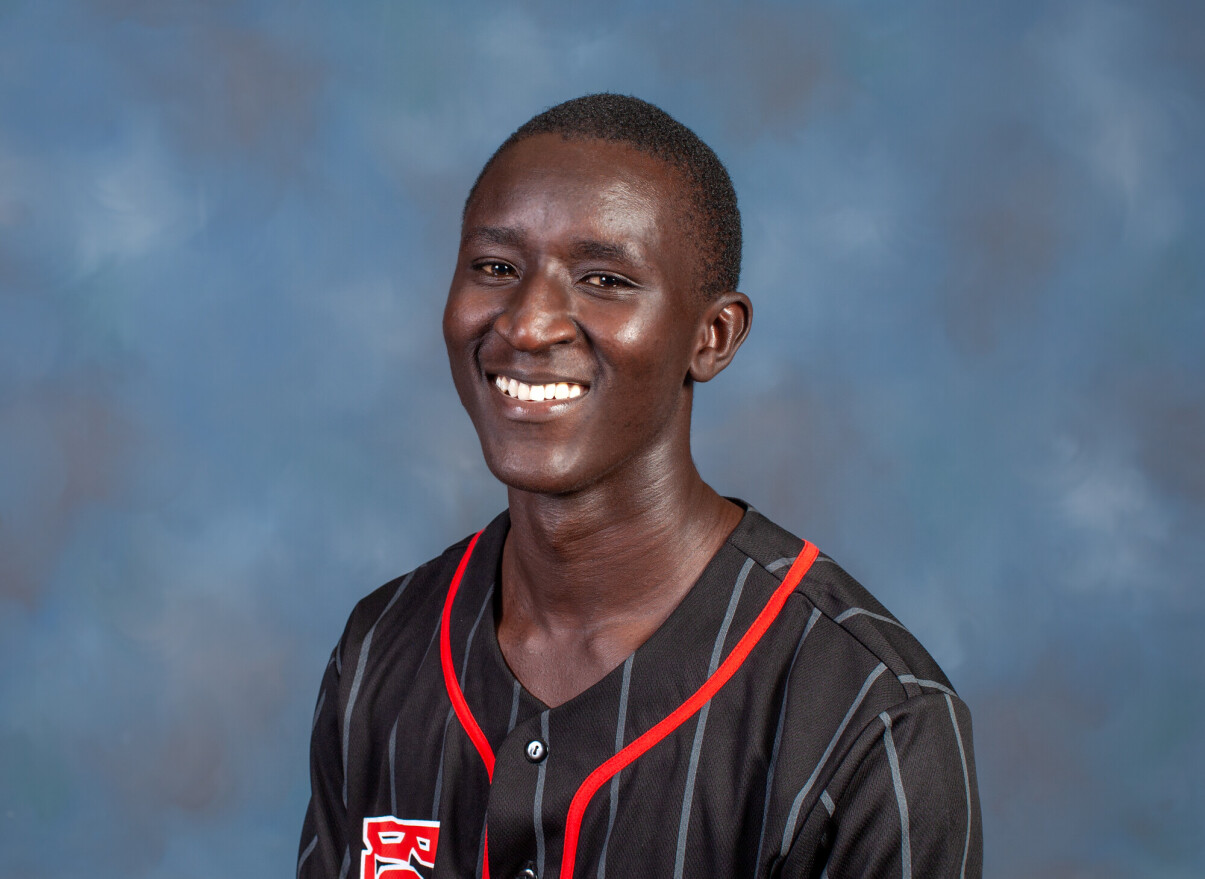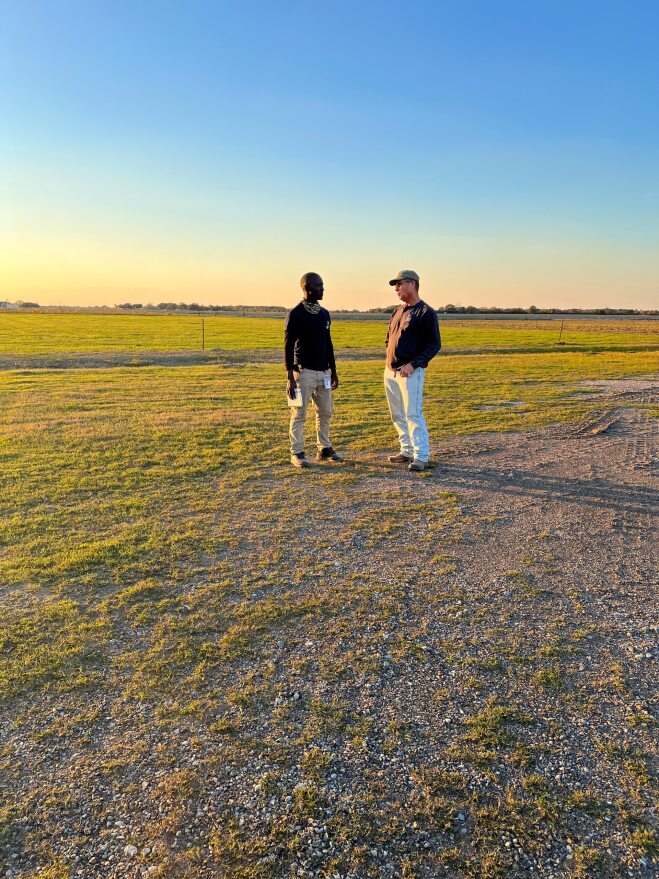Building homes, breaking boundaries

Editor’s note: This story about IVEP participant Jack Odhiambo was written by Krystal Hollier for Jennings Daily News in Jennings, Louisiana, and is adapted and used here with permission.
International exchange volunteer Jack Odhiambo is making a difference for Lousiana families affected by hurricanes while gaining new skills and knowledge to take back with him to Kenya.
Odhiambo’s visit to the states was made possible by Mennonite Central Committee (MCC), a global nonprofit organization that strives to share God’s love and compassion for all through relief, development and peacebuilding. The 25-year-old from Kisumu, Kenya, is participating in the International Volunteer Exchange Program (IVEP), which offers a yearlong opportunity for volunteers to engage in meaningful work and develop or expand skills while immersing themselves in diverse cultures.

According to church member Kayla Gary, he and several others have been housed at the Christ Church of Jennings while in the area, working with Mennonite Disaster Service (MDS) on houses that were damaged or destroyed in 2020 during hurricanes Delta and Laura.
“For the last three and a half years, we have been housing volunteers in the church’s gym,” she said. “Normally, the MDS will only stay in one area for a year, but there was so much damage from the hurricanes, they extended the time.”
Odhiambo, who speaks Luo, Swahili and English, grew up in the countryside and went to a boarding school and then Eldoret National Polytechnic Institution for civil engineering., His love for farming, inherited from his grandmother, is an integral part of his identity.
“My grandmother used to grow rice on a large scale,” he said.
In Jennings, while most of Odhiambo’s days are dedicated to rebuilding damaged homes, he has been able to explore some and learn more about the rice industry in Louisiana.
On one occasion, he met with Glen Hetzel, owner of Hetzel Farm, who explained the different techniques and equipment used in the production of rice as well as the progression of technology over time. Odhiambo in return described how rice is grown and harvested in Kenya.
“We use cows to do the harrowing, then from there, we do everything by hand, even the harvesting,” he said. “We dry the rice by cutting the stalks and tying them into bundles. We set the bundles in the sun for some time, then the grain is separated from the stalk by threshing.”
Despite the challenges of adapting to a new environment, Odhiambo is thriving in his learning experience.
“I’m having a good time,” he said. “I like the learning process, and everything is going well. I get to learn the construction process and U.S. culture.”
With constructing houses from the foundation up to learning the differences between cultures, every day brings a new lesson or experience.
“I have never experienced snow back in Kenya,” he said. “So, when we went to Lancaster, Pennsylvania, I got to see a little bit of snow for the first time.”
He also commented on the time difference between the two countries and finding daylight saving time to be very different from his home country.
“Kenya is nine hours ahead of U.S. time,” said Odhiambo. “The one-hour fallback in November seemed odd to me, but it is part of the culture here.”
In the five months Odhiambo has been in America, he has traveled from Jennings to Minnesota, Columbus, Mississippi, and Lancaster. His next stop will be Florida. Gary, who has been involved with the exchanges, said she has enjoyed her time with them.

“I have enjoyed getting to know Jack, along with the three other young men who were volunteering their time with the Mennonite Disaster Service. They are all heading home, and we will miss them so much. I also appreciate Glen Hetzel taking the time to show Jack around his farm and educating him on rice farming. I hope we get to see these folks again someday, but if not, they’ve made a lasting impression on our hearts.”

